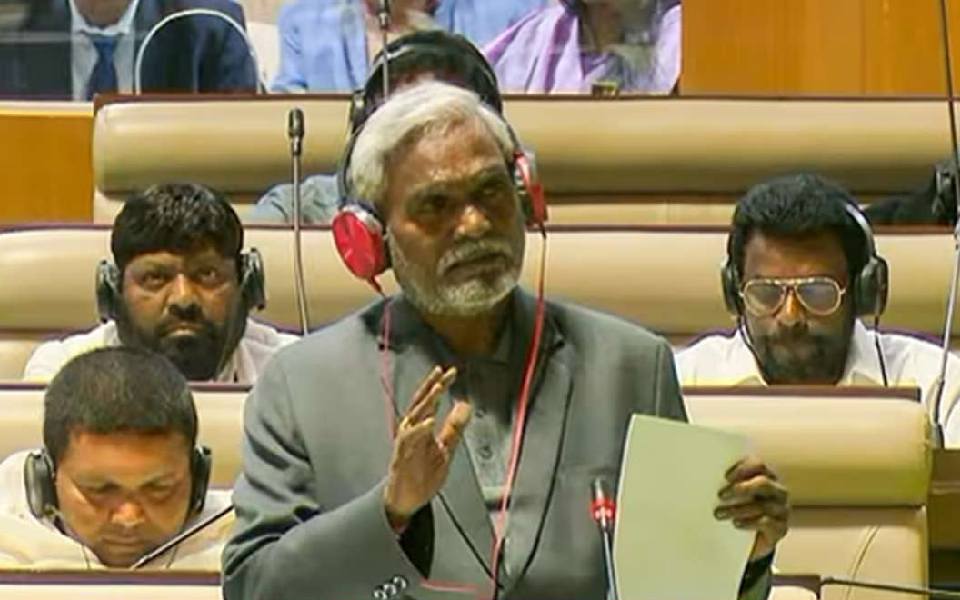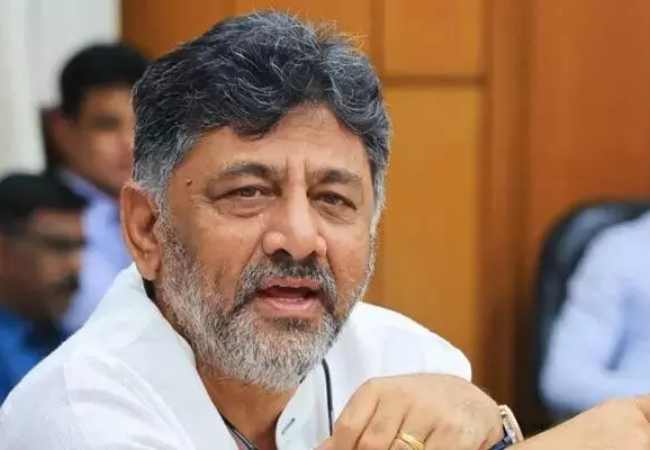Ranchi, Jun 19: The Jharkhand government on Wednesday approved a proposal to increase the salaries and other perks of the chief minister, leader of opposition, speaker, ministers, and legislators by up to 50 per cent.
While legislators will receive a maximum salary hike of 50 per cent, CM and ministers will see increases of about 25 per cent and 31 per cent, respectively. The approval was granted during a cabinet meeting chaired by Chief Minister Champai Soren.
Cabinet Secretary Vandana Dadel confirmed the approval, stating, "The cabinet has approved the hike in salaries, allowances, and other perks for legislators, ministers, the Speaker, Leader of Opposition, Chief Minister, and Assembly officials."
The basic salary of the CM has been increased from Rs 80,000 per month to Rs 1 lakh. Ministers' salaries have been raised from Rs 65,000 to Rs 85,000, and legislators' pay from Rs 40,000 to Rs 60,000.
The Speaker's basic salary has increased from Rs 78,000 per month to Rs 98,000, the leader of opposition's from Rs 65,000 to Rs 85,000, and the chief whip's from Rs 55,000 to Rs 75,000.
In addition to salary hikes, allowances and other perks were also approved.
The area allowance for the CM was increased from Rs 80,000 to Rs 95,000 per month, and the refreshment allowance from Rs 60,000 to Rs 70,000.
Ministers will now receive a kshetra bharta (area allowance) of Rs 95,000, up from Rs 80,000, and refreshment allowance of Rs 55,000, up from Rs 45,000. Legislators' area allowance was raised from Rs 65,000 to Rs 80,000 per month, and their refreshment allowance from Rs 30,000 to Rs 40,000 per month.
The decision followed the recommendations of a five-member panel set up to review the salaries and perks of the Chief Minister, ministers, Speaker, leader of opposition, chief whip, and whip.
The panel submitted its report in December last year, recommending a 25 per cent salary hike for the CM and about 31 per cent for other ministers.
Additionally, in August last year, another committee proposed raising the basic salary of MLAs from Rs 40,000 to Rs 60,000 and suggested increases in other perks for legislators.
Let the Truth be known. If you read VB and like VB, please be a VB Supporter and Help us deliver the Truth to one and all.
Bengaluru (PTI): Karnataka has proposed a new Information Technology Policy for 2025–2030, offering extensive financial and non-financial incentives aimed at accelerating investments, strengthening innovation and expanding the state's tech footprint beyond Bengaluru.
The Karnataka Cabinet gave its nod to the policy 2025–2030 with an outlay of Rs 445.50 crore on Thursday after the Finance Department accorded its approval.
The policy introduces 16 incentives across five enabler categories, nine of which are entirely new, with a distinctive push to support companies setting up or expanding in emerging cities.
Alongside financial support, the government is also offering labour-law relaxations, round-the-clock operational permissions and industry-ready human capital programmes to make Karnataka a globally competitive 'AI-native' destination.
According to the policy, units located outside Bengaluru will gain access to a wide suite of benefits, including research and development and IP creation incentives, internship reimbursements, talent relocation support and recruitment assistance.
The benefits also include EPF reimbursement, faculty development support, rental assistance, certification subsidies, electricity tariff rebates, property tax reimbursement, telecom infrastructure support, and assistance for events and conferences.
Bengaluru Urban will receive a focused set of six research and development and talent-oriented incentives, while Indian Global Capability Centres (GCCs) operating in the state will be brought under the incentive net.
Incentive caps and eligibility thresholds have been raised, and the policy prioritises growth-focused investments for both new and expanding units.
Beyond incentives, the government focuses on infrastructure and innovation interventions.
A flagship proposal in the policy is the creation of Techniverse -- integrated, technology-enabled enclaves developed through a public-private partnership model inside future Global Innovation Districts.
These campuses will offer plug-and-play facilities, artificial intelligence and machine learning and cybersecurity labs, advanced testbeds, experience centres, and disaster-resistant command centres.
There will also be a Statewide Digital Hub Grid and a Global Test Bed Infrastructure Network, linking public and private research and development, and innovation facilities across Karnataka.
The government has proposed a Women Global Tech Missions Fellowship for 1,000 mid-career women technologists, an IT Talent Return Programme to absorb experienced professionals returning from abroad, and broad-based skill and faculty development reimbursements.
Shared corporate transport routes in Bengaluru and tier-two cities will be designed with Bengaluru Metropolitan Transport Corporation and other transport entities to support worker mobility.
The government said the policy is the outcome of an extensive research and consultation process involving TCS, Infosys, Wipro, IBM, HCL, Tech Mahindra, Cognizant, HP, Google, Accenture and NASSCOM, along with sector experts and stakeholder groups.
It estimates an outlay of Rs 967.12 crore over five years, comprising Rs 754.62 crore for incentives and Rs 212.50 crore for interventions such as Techniverse campuses, digital grid development, global outreach missions and talent programmes.





